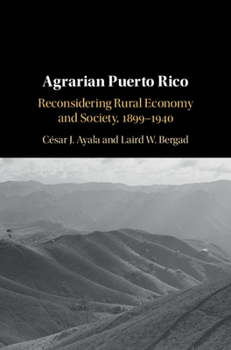Agrarian Puerto Rico: Reconsidering Rural Economy and Society, 1899-1940
Fundamental tenets of colonial historiography are challenged by showing that U.S. capital investment into this colony did not lead to the disappearance of the small farmer. Contrary to well-established narratives, quantitative data show that the increasing integration of rural producers within the U.S. market led to differential outcomes, depending on pre-existing land tenure structures, capital requirements to initiate production, and demographics. These new data suggest that the colonial economy was not polarized into landless Puerto Rican rural workers on one side and corporate U.S. capitalists on the other. The persistence of Puerto Rican small farmers in some regions and the expansion of local property ownership and production disprove this socioeconomic model. Other aspects of extant Puerto Rican historiography are confronted in order to make room for thorough analyses and new conclusions on the economy of colonial Puerto Rico during the early 20th century.
Format:Hardcover
Language:English
ISBN:1108488463
ISBN13:9781108488464
Release Date:March 2020
Publisher:Cambridge University Press
Length:322 Pages
Weight:1.20 lbs.
Dimensions:0.8" x 6.2" x 9.1"
Customer Reviews
0 rating





